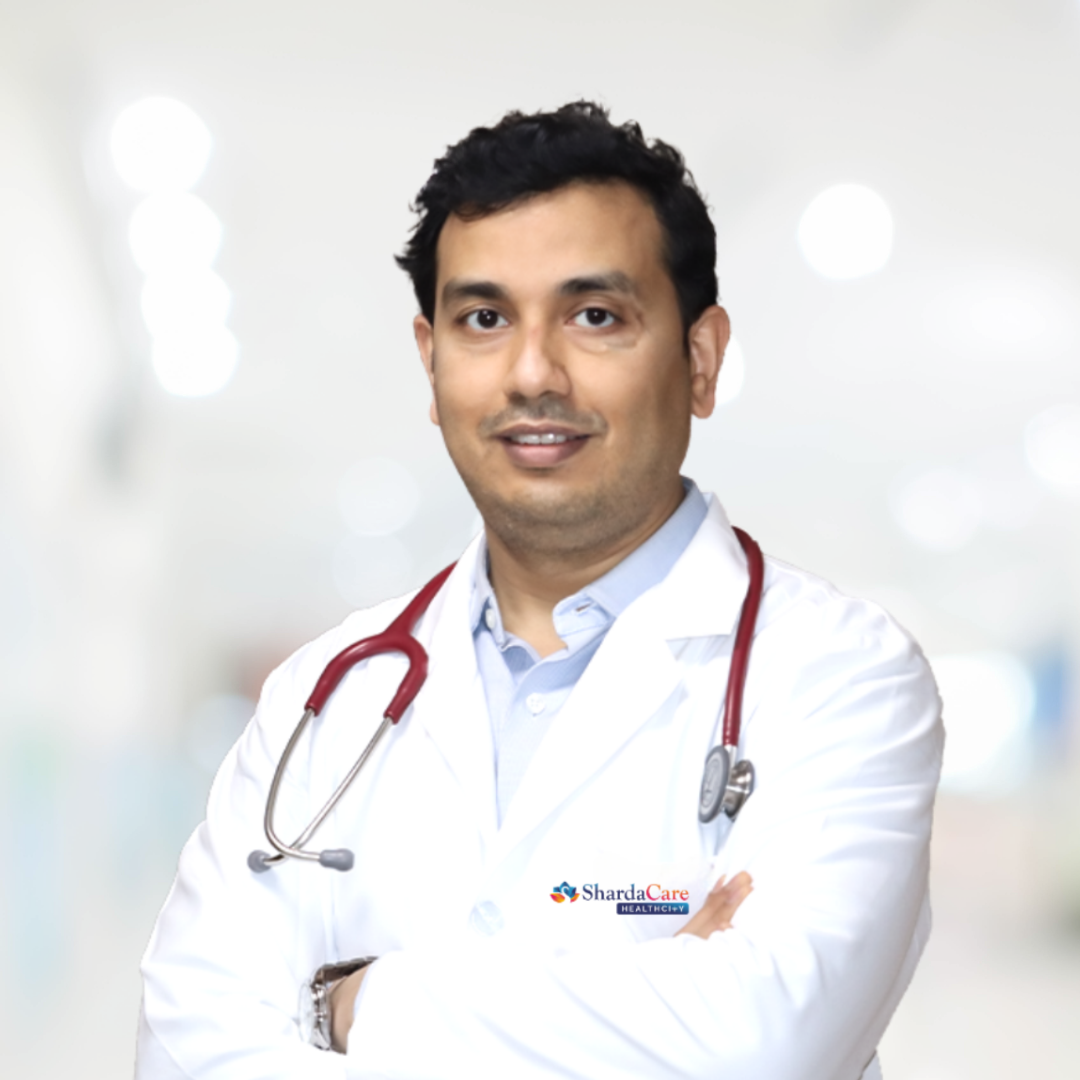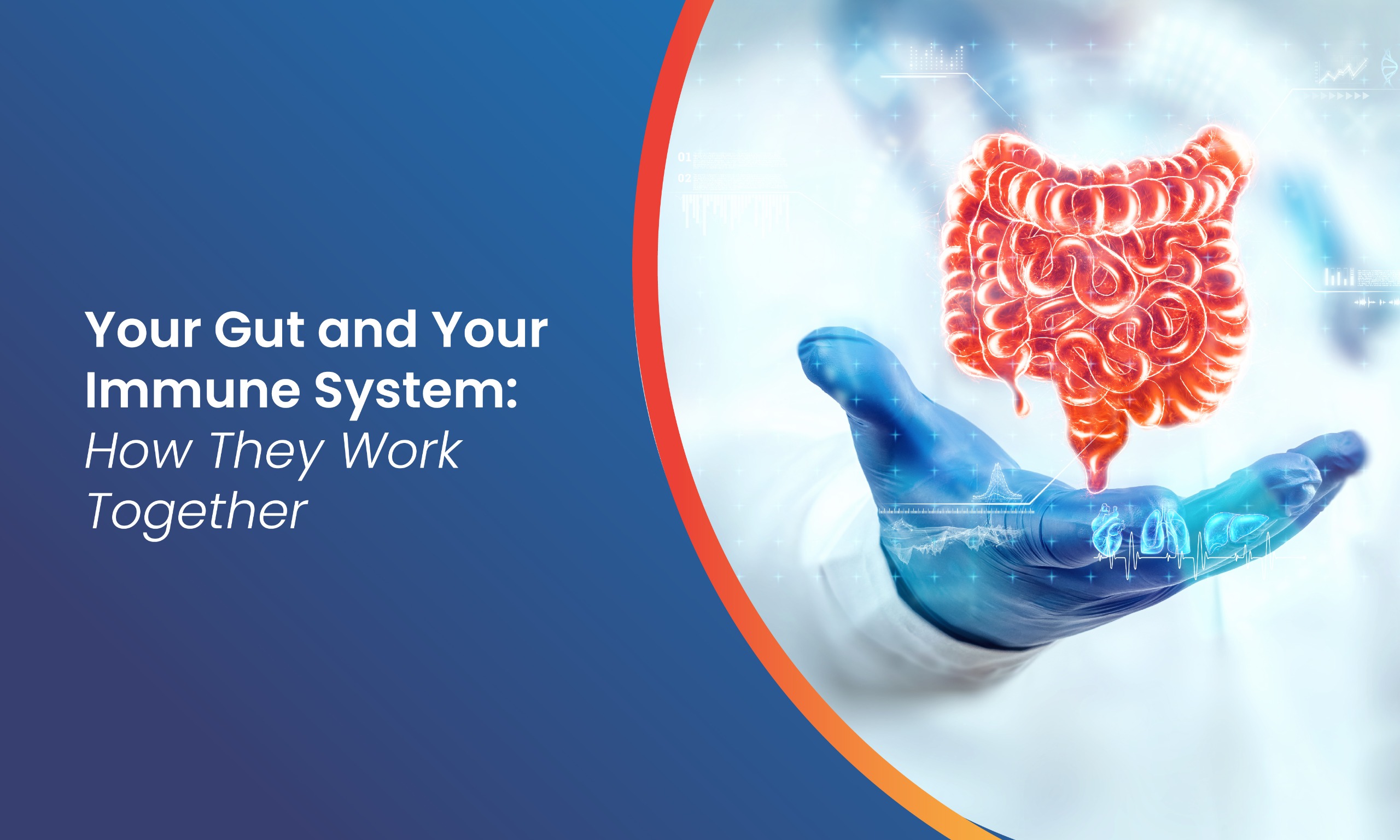
- At ShardaCare - Healthcity , we offer comprehensive diagnostic services to provide our patients with the most accurate insights into their digestive health. One of the key procedures we utilize is the upper gastrointestinal (GI) endoscopy, a minimally invasive technique that allows our gastroenterology experts to visually examine the upper portions of the digestive system.
- During an upper GI endoscopy, a thin, flexible tube called an endoscope is gently inserted through the patient's mouth and into the esophagus, stomach, and first part of the small intestine (duodenum). This endoscope is equipped with a tiny camera and lighting system, enabling our specialists to capture high-quality video and images of the interior of the upper digestive tract.
- In addition to its diagnostic capabilities, the upper GI endoscopy can also be utilized for certain treatment procedures. For example, our specialists may use the endoscope to perform tissue biopsies, remove polyps, or expand narrowed areas of the esophagus, providing comprehensive care tailored to each patient's individual needs.
- At ShardaCare - Healthcity , our state-of-the-art endoscopy suite and skilled gastroenterology team are dedicated to ensuring a comfortable and efficient experience for our patients.
Looking for an Expert
Sharda Care The Healthcity is home to some of the eminent Doctors in the world.
Book an AppointmentOur Medical Experts
Related Specialties
Health Blogs
Frequently Ask Questions
Heart disease can develop due to several factors like high blood pressure, high cholesterol, smoking, diabetes, obesity, lack of physical activity, stress, and family history. Lifestyle habits play a major role.
Chest pain or discomfort, shortness of breath, pain in the arms, jaw, neck or back, cold sweat, nausea, and lightheadedness can be signs of a heart attack. Immediate medical attention is crucial.
Symptoms include fatigue, chest pain, irregular heartbeat, shortness of breath, and swelling in the legs or abdomen. However, some heart conditions may not show clear signs initially.
Yes, many forms of heart disease are preventable with a heart-healthy lifestyle—balanced diet, regular exercise, avoiding tobacco, managing stress, and keeping conditions like hypertension and diabetes under control.
In some cases, yes. With early detection and intensive lifestyle changes—combined with medication—certain types of heart disease can be managed and even improved.
Stay active, eat a nutritious diet, maintain a healthy weight, quit smoking, reduce salt and sugar intake, and get regular health check-ups. Managing cholesterol and blood pressure is key.
Cardiologists treat conditions like Coronary Artery Disease, Heart Failure, Arrhythmia, Valve Disorders, Congenital Heart Defects, High Blood Pressure, and more.
Treatment can range from lifestyle changes and medication to advanced procedures like Angioplasty, Stent Placement, Pacemaker Implantation, and even Heart Surgery.
While cardiologists diagnose and treat heart issues, heart surgeries are performed by Cardiothoracic or Cardiac Surgeons. However, Interventional Cardiologists do perform minimally invasive procedures.
They specialize in procedures like angioplasty, stenting, catheter-based diagnostics, and treatments that don’t require open-heart surgery.
With medical advancements, the average life expectancy after a heart transplant is 10 to 15 years, though many live longer with proper care and follow-up.
Absolutely. Routine heart check-ups help detect silent risk factors early. Prevention is always better than cure—especially when it comes to your heart.
At Sharda Care - Healthcity, our cardiology team offers compassionate care backed by cutting-edge technology, experienced specialists, and a patient-first approach—right here in Delhi-NCR.











 Book Appoint.
Book Appoint.
 Find a Doctor
Find a Doctor
 WhatsApp
WhatsApp
 Emergency
Emergency





